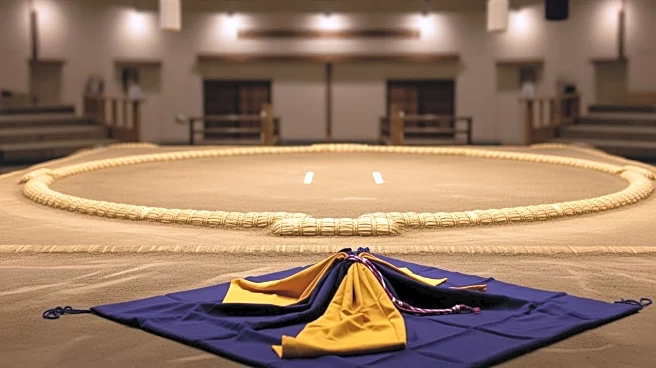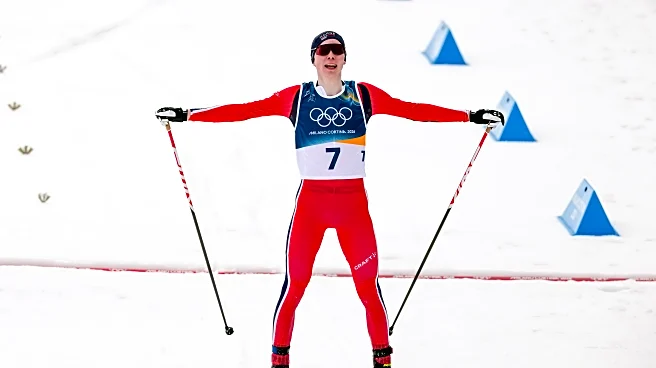What's Happening?
Aonishiki, a sumo wrestler originally from Ukraine, has made history by becoming the first from his country to win an elite-level sumo championship in Japan. Competing under the ring name Aonishiki Arata, he triumphed over Hoshoryu, a top-ranked Mongolian wrestler, in the decisive match of the Kyushu tournament held in western Japan. Aonishiki, whose real name is Danilo Yavhushyshyn, moved to Japan over three years ago following Russia's invasion of Ukraine. At just 21 years old, he has rapidly ascended the ranks in Japan's national sport. His journey to Japan began after forming a friendship with a Japanese wrestler at a tournament in 2019. Aonishiki's victory is notable as non-Japanese sumo wrestlers, including those from Mongolia and Hawaii,
have historically excelled in the sport.
Why It's Important?
Aonishiki's victory is significant as it highlights the growing diversity within the traditionally Japanese sport of sumo wrestling. His success may inspire other international athletes to pursue careers in sumo, potentially increasing the sport's global appeal and participation. Additionally, Aonishiki's achievement underscores the strong wrestling tradition in Ukraine, which has produced Olympic champions like Zhan Beleniuk. This win could foster greater cultural exchange and understanding between Japan and Ukraine, as well as encourage more international collaborations in sports. For Japan, the inclusion of successful foreign wrestlers like Aonishiki can enhance the competitive landscape and bring fresh perspectives to the sport.
What's Next?
Following his championship win, Aonishiki may continue to compete in upcoming sumo tournaments, further establishing his presence in the sport. His victory could lead to increased media attention and sponsorship opportunities, both in Japan and internationally. As he continues to perform, Aonishiki might inspire other Ukrainian athletes to explore sumo wrestling, potentially leading to a rise in Ukrainian participation in the sport. Additionally, his success may prompt discussions within the sumo community about the role and impact of foreign wrestlers in Japan's national sport.
Beyond the Headlines
Aonishiki's achievement may have broader implications for the cultural integration of foreign athletes in Japan. His success could challenge traditional perceptions of sumo as a predominantly Japanese sport, encouraging more inclusivity and acceptance of diverse backgrounds. This development might also influence the way sumo is marketed and promoted globally, potentially attracting new audiences and increasing international viewership. Furthermore, Aonishiki's journey from Ukraine to Japan highlights the personal and professional challenges faced by athletes who relocate due to geopolitical circumstances, offering insights into the resilience and adaptability required to succeed in a foreign environment.

















